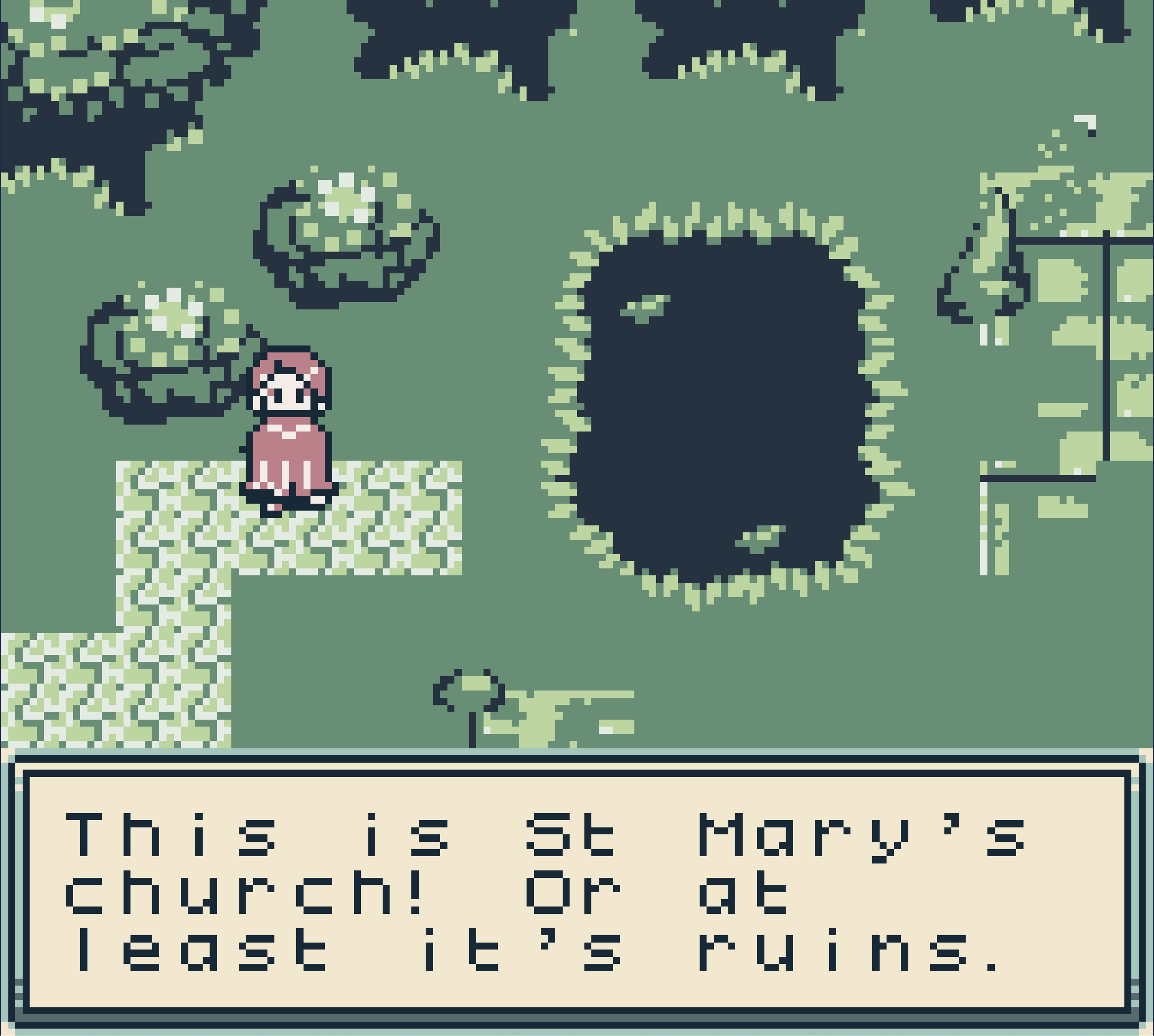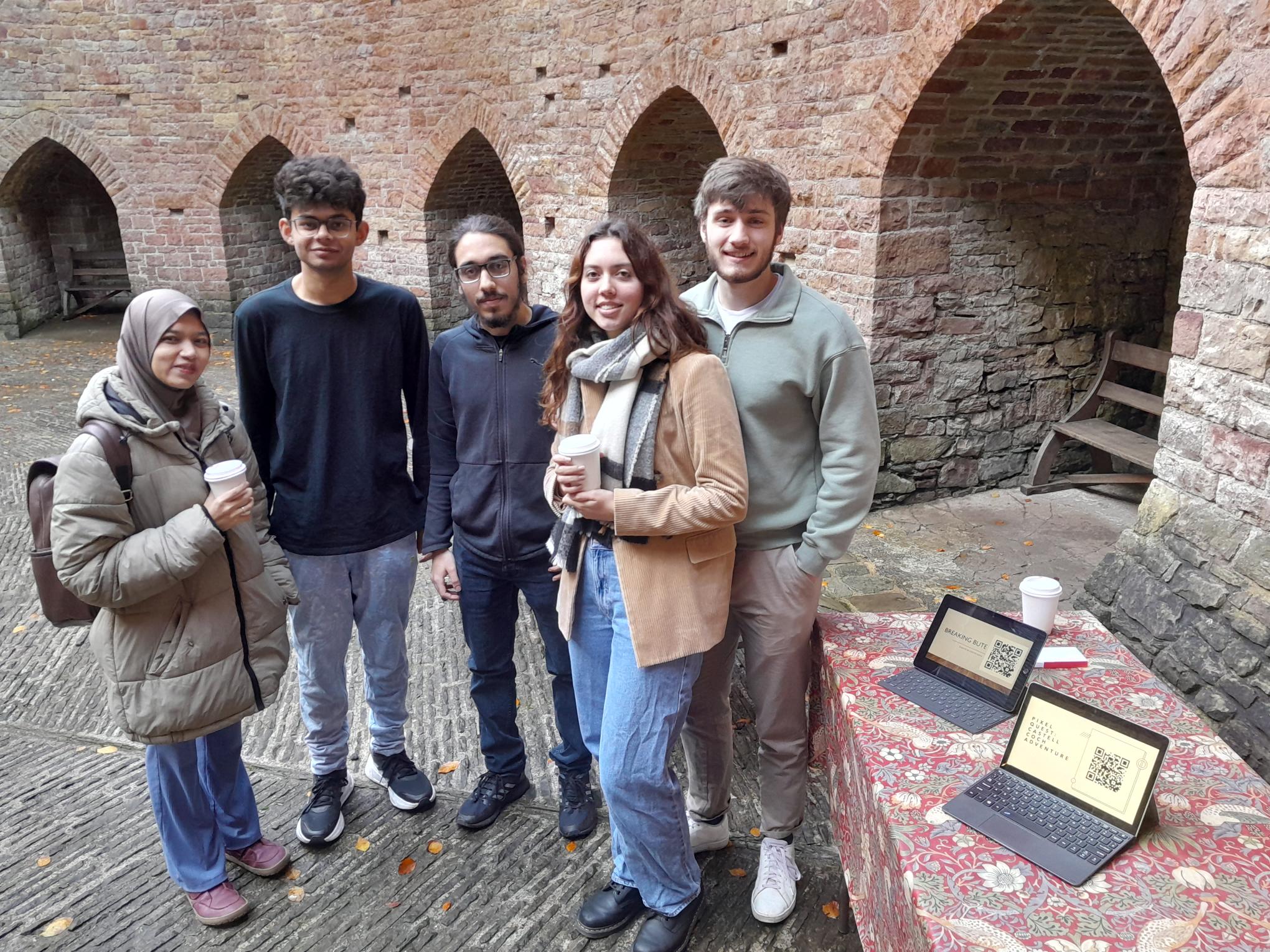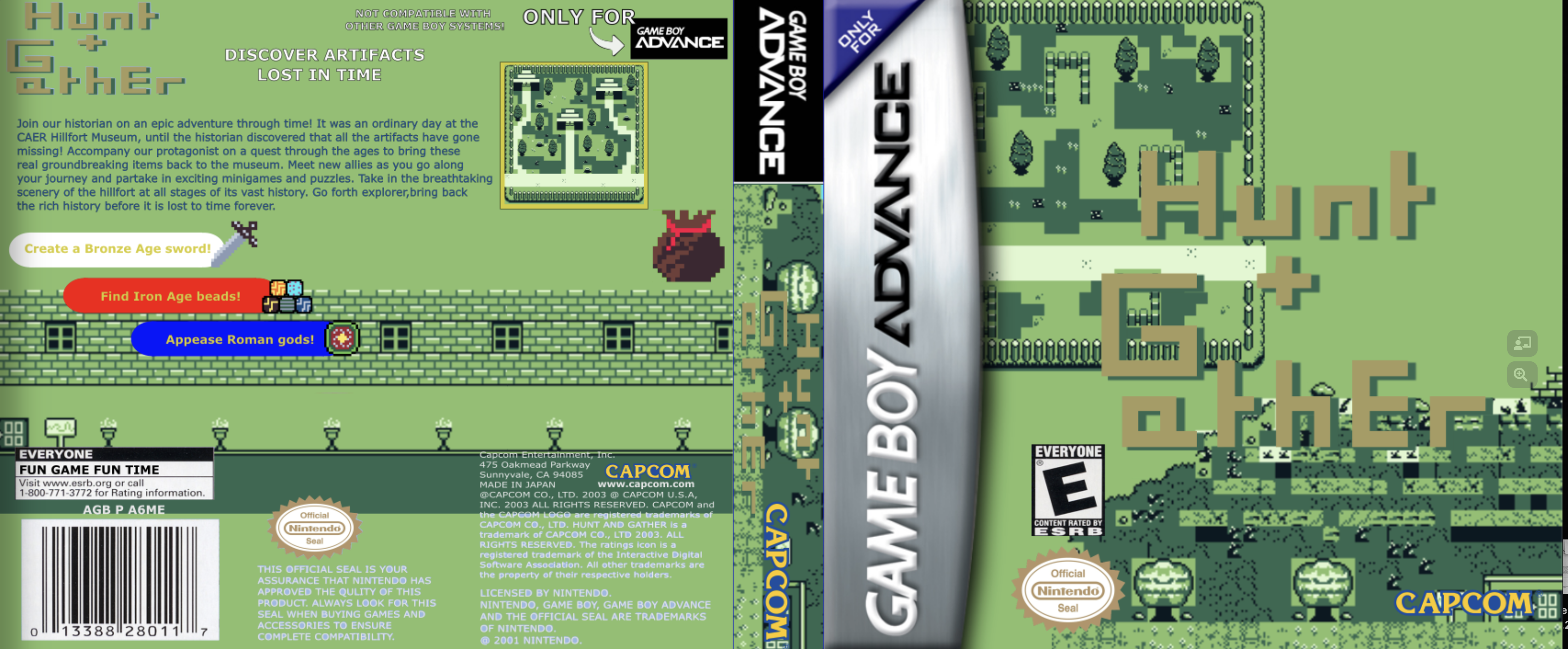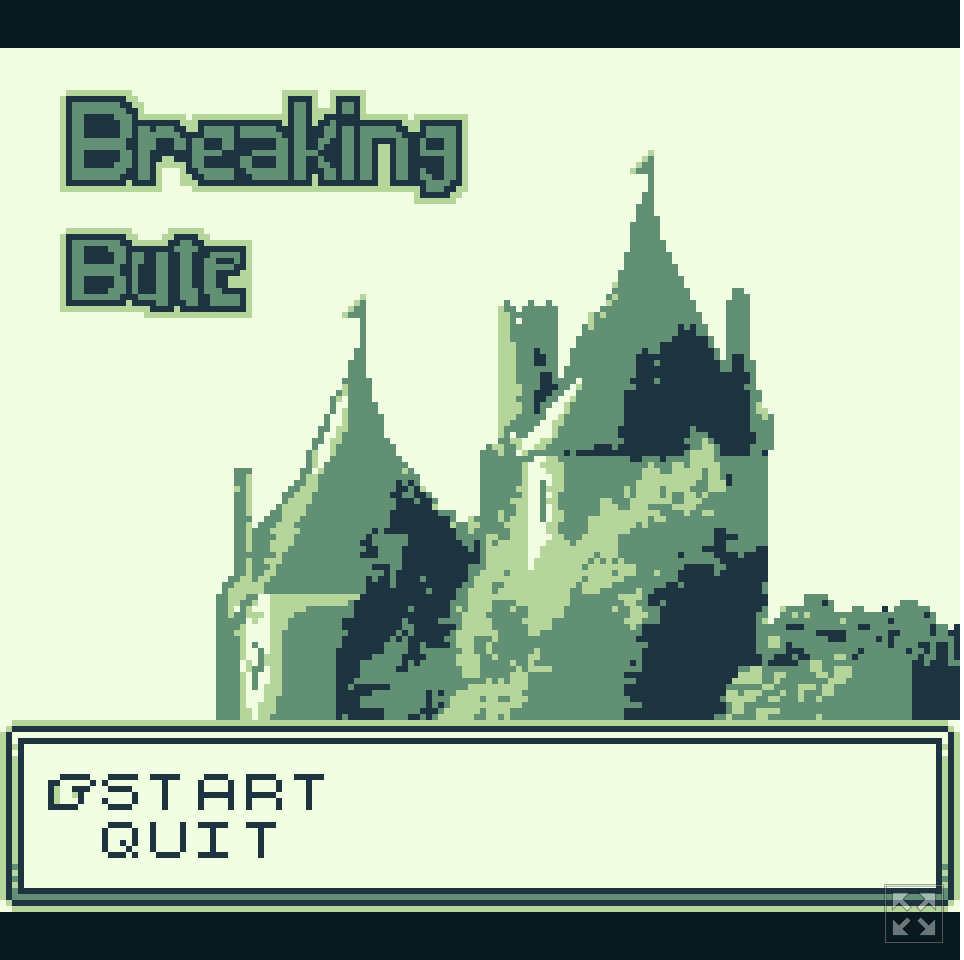Gaming the past: Cardiff Heritage Jam
27 November 2023Esther Wright explains in this post how a chance introduction to Daniel J. Finnegan, Senior Lecturer in Computer Science at Cardiff University, and the realization of our shared interest in video games, history, and heritage, resulted in the Cardiff Heritage Jam.
Recognizing that game design and development always involves collaboration across traditional disciplinary boundaries, Dan and I set out to explore new and exciting ways to engage Cardiff University students with the process too. Here my training and expertise as an historian who researches representations of the past in video games, and Dan’s experience of game development (not least through his community interest company, Echo Games) proved the perfect match.
I know from experience of teaching an undergraduate module on historical digital games that many students who come to university eager to study the past have been inspired to do so by playing them growing up (often popular titles like Assassin’s Creed, Call of Duty, and Red Dead Redemption). However, often they’ve never had the opportunity to look “under the hood” at how those sorts of games are made. The reverse seems to be true of computer science students. They may have spent a lot of time on software development and programming, or equally playing games that engage with historical settings, places, and characters, but never necessarily had the opportunity to do historical research that could inform the development of game narratives and worlds. Dan and I decided to explore the potential of designing activities that offer students the opportunity to experience both sides of the process. From this, the Cardiff Heritage Jam was born.
Over three years the jam’s core principle has remained the same: pairing students from humanities and computer science backgrounds to work collaboratively on the design and development of heritage-themed game prototypes. Born under the banner of the “COMSC x SHARE Summer School” in 2021, and amidst the challenges of COVID-19 lockdowns, the first iteration of the jam was a fully remote experience. How to make the jam work virtually required a different way of thinking from how we would normally teach or run activities. We collaborated through gather.town – a far more engaging virtual environment than Zoom or Teams – and created a space where we could all meet daily and work in teams to begin game development.
 An important aim of the jam has always been to collaborate with local community and heritage organisations. Given the wealth of interesting historical sites and spaces more or less on the University’s doorstep, it’s been exciting to explore potential ways that games can showcase different aspects of the history of Cardiff and South East Wales. Partnering with the CAER Heritage project in 2021, two teams of students designed games based around 6000 years of heritage in Caerau and Ely, and a range of different archaeological artifacts introduced to them by Dave Wyatt and Olly Davis, experts in medieval archaeology, history, and community engagement from the School of History, Archaeology and Religion. The final projects produced by the students – “Hunt and Gather” and “Artifact Attack” – incorporated digital recreations of the present-day site, the Hidden Hillfort Community Centre, as well as reimagining of the medieval hillfort itself.
An important aim of the jam has always been to collaborate with local community and heritage organisations. Given the wealth of interesting historical sites and spaces more or less on the University’s doorstep, it’s been exciting to explore potential ways that games can showcase different aspects of the history of Cardiff and South East Wales. Partnering with the CAER Heritage project in 2021, two teams of students designed games based around 6000 years of heritage in Caerau and Ely, and a range of different archaeological artifacts introduced to them by Dave Wyatt and Olly Davis, experts in medieval archaeology, history, and community engagement from the School of History, Archaeology and Religion. The final projects produced by the students – “Hunt and Gather” and “Artifact Attack” – incorporated digital recreations of the present-day site, the Hidden Hillfort Community Centre, as well as reimagining of the medieval hillfort itself.
How to negotiate between “past and present” has always been a key theme of the jam. 2022’s jam encouraged the students to think about the interconnectedness of spaces, sites, and communities across the city of Cardiff when designing their games. We collaborated with another Cardiff University civic engagement project, Community Gateway. Through a workshop with community members at the Grange Pavilion, students explored the diverse histories and heritage of Grangetown and Butetown. A partnership with the Cardiff and Vale University Health Board’s Arts for Health and Wellbeing charity also allowed us to explore the history of Cardiff Royal Infirmary, particularly in the Interwar period. The students produced games depicting a festival at the Grange Pavilion (“Grangetown Feast”), and a reimagined historic Christmas Day at Cardiff Royal Infirmary, with Santa delivering presents to children (“Countdown to Christmas”).

Given the popularity and visibility of digital games, as well as the possibilities presented by gaming technologies (like Virtual Reality and Augmented Reality), museums, galleries, and heritage organizations are increasingly interested in exploring the potential of the medium for engaging visitors (new and old). In 2023, the jam moved outside of the immediate city limits. In partnership with Cadw, students explored the history of Castell Coch. Cardiff History’s Marion Löffler, Reader in Welsh History, gave students expert guidance on the site’s significance from its medieval origins to nineteenth-century ownership by the Marquess of Bute, and its connections with Cardiff’s industrial heritage. A talk from custodian Angharad Howell informed the students’ understanding of Castell Coch’s present-day status and Cadw’s care of it. After two days exploring the castle itself and drawing inspiration from its preserved spaces and architecture (and two fantastic lunches provided by Lew’s Coffee Shop Yn Yr Castell), an

on-campus workshop led by Dan introduced the students to a number of key game design principles. This gave the teams space to explore how best to combine the history and heritage of the site with a gameplay experience that would be interesting and fun (and what “fun” even means), as well as consider the kinds of player demographic they were aiming for and their motivations, and the overall message they hope people will take away from engaging with their games. Using a combination of free game development and asset creation software, each year the students have built their games in GBstudio – a programme which allows you to make games in the style of the original Nintendo Gameboy.
You can play both of this year’s games – Breaking Bute and Pixel Quest – online via itch.io (with the password GAMEJAM2023).

Dan and I have appreciated the success of the jam thus far for two key reasons. Students from across the University have been able to explore parts of Cardiff’s history and heritage that they might not have otherwise known about or had the opportunity to visit. Moreover, as an experience, we have tried to demystify both game development and the heritage sector for students. Here our aim has been to encourage them to recognise that game design will always need researchers and a creative mindset as well as hard coding skills, and that heritage organizations are incredibly keen to engage with individuals who have software development skills to explore innovative ways of showcasing their rich heritage assets to the public.
Author: Dr Esther Wright, Senior Lecturer in Digital History, Cardiff University.
- American history
- Central and East European
- Current Projects
- Digital History
- Early modern history
- East Asian History
- Enlightenment
- Enviromental history
- European history
- Events
- History@Cardiff Blog
- Intellectual History
- Medieval history
- Middle East
- Modern history
- New publications
- News
- Politics and diplomacy
- Research Ethics
- Russian History
- Seminar
- Social history of medicine
- Teaching
- The Crusades
- Uncategorised
- Welsh History